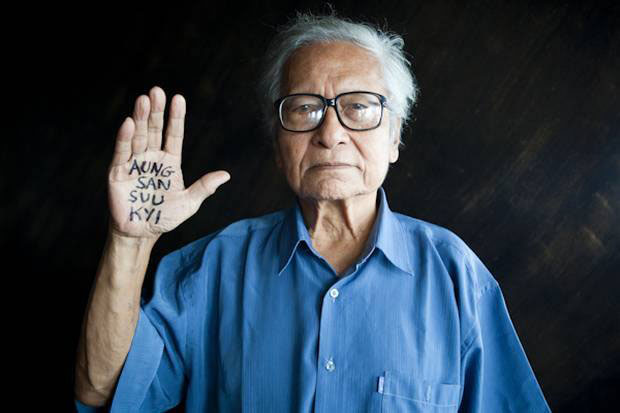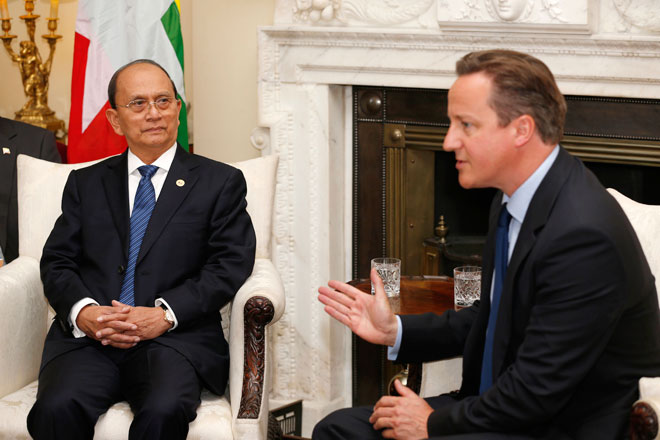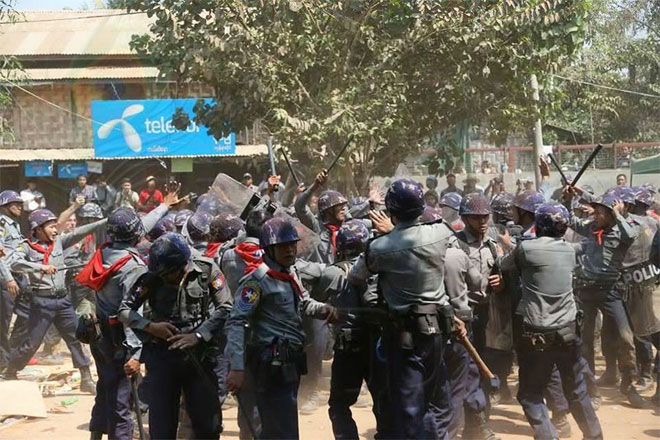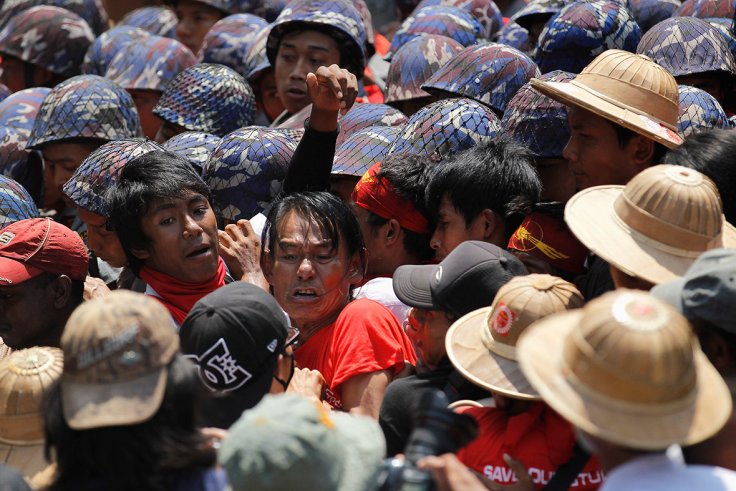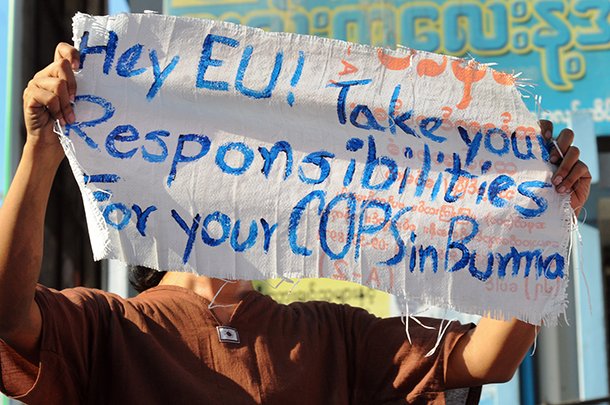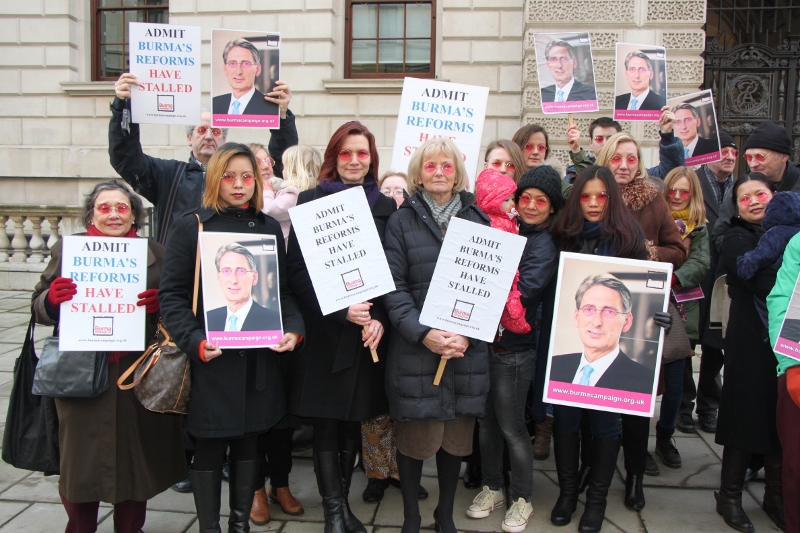Blue Shirt Day draws attention to political prisoners
April 21, 2015 is the first anniversary of the death of U Win Tin – journalist, democracy activist, founding member of the National League for Democracy, and one of Myanmar’s most high profile and respected political prisoners who spent over 19 years in prison.
At home and abroad, people will be donning blue shirts in memory of U Win Tin and the many political prisoners still incarcerated in Myanmar, according to several activist groups, including the Burma Partnership.
When U Win Tin was eventually released in 2008, he refused to hand back his blue prison shirt, and vowed to wear a blue shirt every day until all political prisoners were released, saying: “If there are no political prisoners … I will take off my shirt, but up until now I haven’t seen good indications.”
Sadly, despite the many promises made by President U Thein Sein to release all political prisoners, U Win Tin continued wearing a blue shirt until the day he died, one year ago, says Burma Partnership.
Court finds VGastro Bar trio guilty of insulting Buddhism
Mark Farmaner, director of Burma Campaign UK, told Mizzima: “This conviction is all about the government playing to Buddhist nationalists ahead of the election. How can posting an image of Buddha wearing headphones on Facebook be considered defaming Buddhism, but shooting and torturing monks and attacking monasteries in 2007 isn’t?”
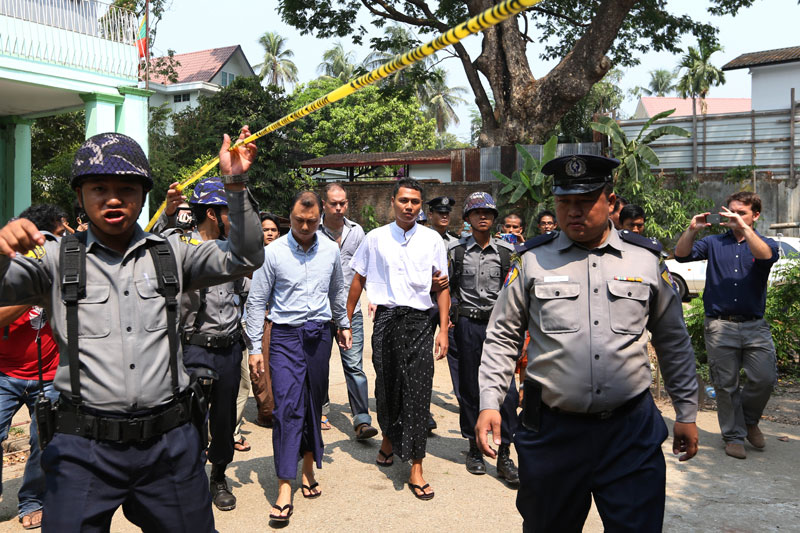
UK government admits ‘setbacks’ in Myanmar’s reforms
Anna Roberts, Executive Director of Burma Campaign UK is quoted in Mizzima:
“Despite admitting there are setbacks, they have not announced any change of approach or policy. They are literally doing business as usual. Admitting there is a problem is an essential first step to dealing with a problem, now they need to change their policy, starting with reviewing the assistance they are giving to the authoritarian, military-backed Burmese government.”
UK NGO calls for review of aid in wake of police crackdowns
Our statement about the crackdown on student protesters is reported in Mizzima:
“Burma Campaign UK is concerned about the muted response of the international community to the crackdown on protesting students, which stands in stark contrast to statements and actions taken after similar crackdowns by the previous regime. This mirrors a general reluctance to strongly condemn or take action on human rights violations by the government of Burma. Gaining international acceptance, getting sanctions lifted, and receiving aid and investment, was a prime motivator for the reform process. Weak and muted responses to human rights violations encourage the government of Burma to believe it can continue to commit human rights abuses without consequences.”
Take action!
Myanmar education law protest: Students ‘at risk of torture and abuses’
Burma Campaign UK Director Mark Farmaner is quoted in the International Business Times:
“Burma is an authoritarian country and if police were told not to use violence, it is very unlikely they would have behaved this way. Burma has been under authoritarian law for decades so police don’t act without permission. I believe the Burmese government gave police order to beat the protesters.” “The danger is that international aids are helping to modernise an authoritarian regime rather than help transition to democracy, so many people in Burma are questioning EU’s decision to provide training because even if they provide good training, police work for the government, which does not respect human rights. The EU needs to make sure that the training provided will not be then turned against protesters as it happened yesterday.”
EU Says Police Training ‘Still Needed’ After Crackdowns Draw Criticism
Quoted in The Irrawaddy, Mark Farmaner, director of the Burma Campaign UK, said any further training should be contingent on a repeal of repressive laws in Burma.
“[The] EU training Burma’s police in crowd control can only be effective if their political masters are willing to accept that people have the right to protest,” Farmaner told The Irrawaddy. “The government is still using the police as a means to control people, not protect them.”
Addressing Sexual Violence in Burma
Our campaign is reported in City News, Chiang Mai:
Anna Roberts of Burma Campaign UK , suggests the British government take action with the tools from their own Preventing Sexual Violence Initiative. Roberts pointed out in a recent article that the British government can take three practical steps toward ending rape in Burma.
“Step One: The British government has set up teams of experts to investigate cases like this. They should lobby the Burmese government at the highest level to allow a team to be sent to Burma.
Step Two: Stop training the Burmese Army until they take concrete action to end impunity for rape, and take other steps to prevent rape.
Step Three: Support an international investigation into rape and sexual violence in Burma. These rapes are war crimes, and the UN should investigate,” Roberts wrote.
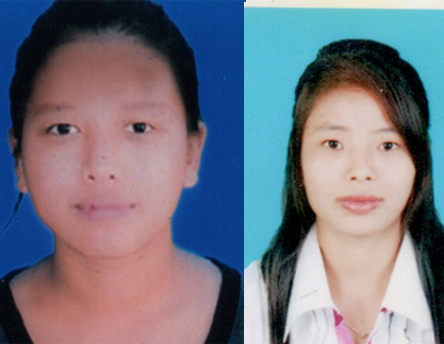
Burma Refugee Delegation visits UK
A delegation of refugees from Thailand-Burma border visited the UK this week for a lobbying trip focusing on the situation of refugees and Internally Displaced Persons (IDPs) along the Thai-Burma border, and the need for more humanitarian assistance.
The delegation spoke in Parliament at a meeting of the All-Party Parliamentary Group for Democracy in Burma. The delegation consists of Sally Thompson, Executive Director of The Border Consortium (TBC), Luiz Kaypoe from the Karenni Refugee Committee (KnRC) and Naw Ta Mla Saw from Karen Women Organisation (KWO). TBC provides food, shelter, camp management and livelihoods support for 110,000 refugees in Thailand and 120,000 Internally Displaced Persons (IDPs) in Burma. KnRC is a grassroots organization that provides support to Karenni and other ethnic minority refugees from Burma currently residing in two camps in Thailand. KWO is a community-based organisation with a membership of over 49,000, working to empower Karen women to develop their own communities in education, health and social welfare. KWO also provides assistance for refugees and IDPs along the border areas.
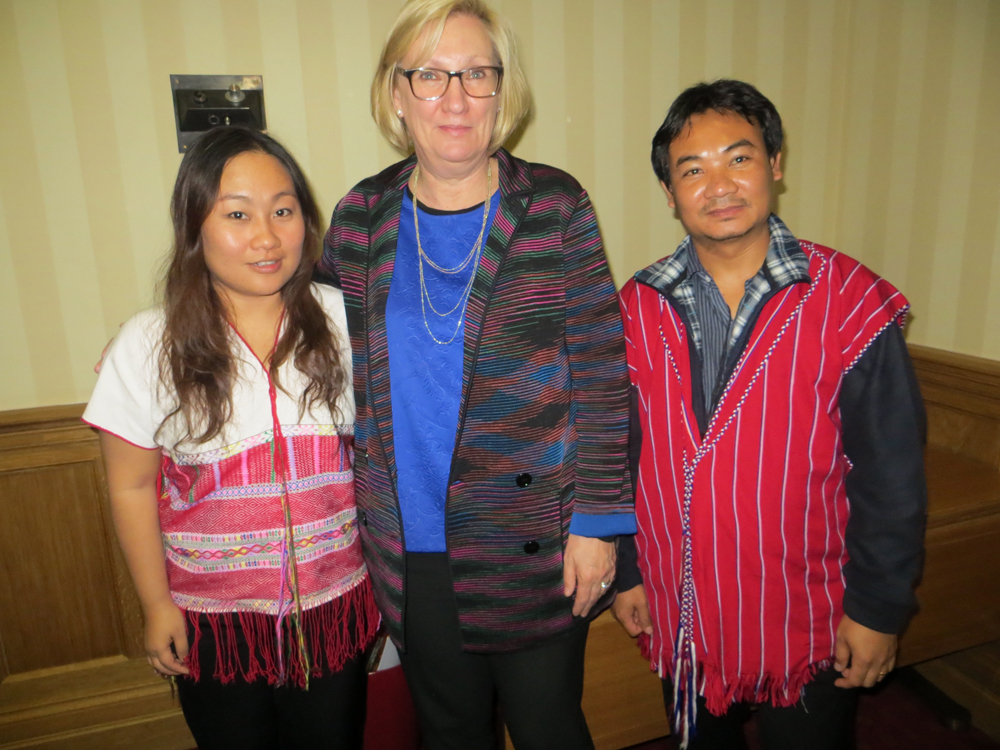
Naw Ta Mla Saw, Baroness Sue Nye and Luiz Kaypoe in the British Parliament.
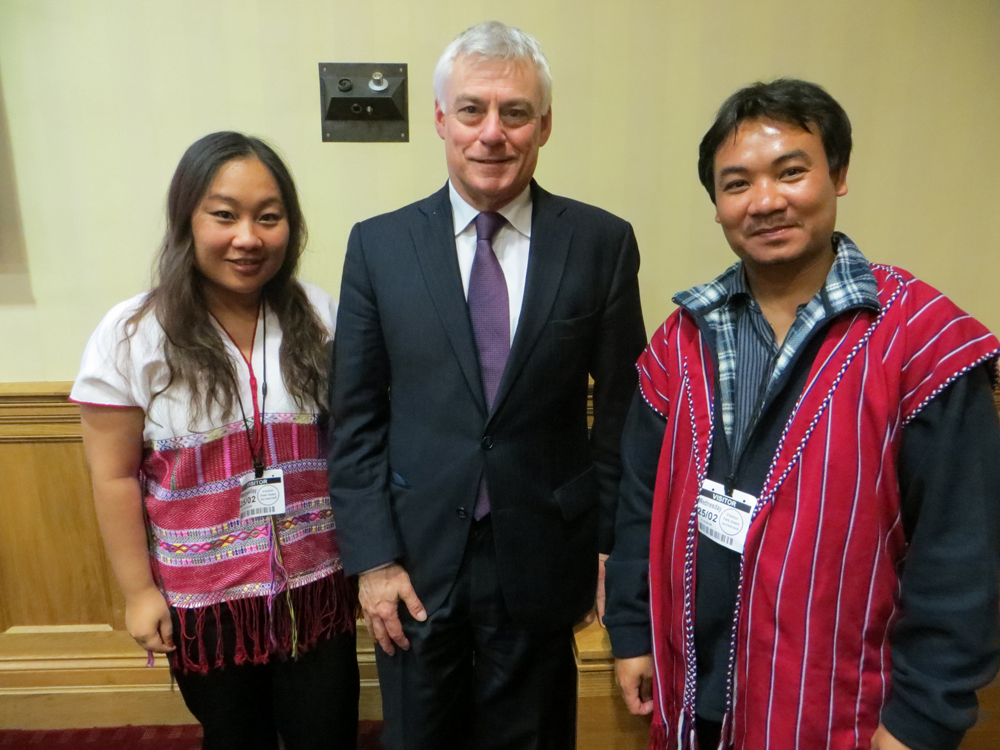
Naw Ta Mla Saw, David Ward MP and Luiz Kaypoe in the British Parliament.
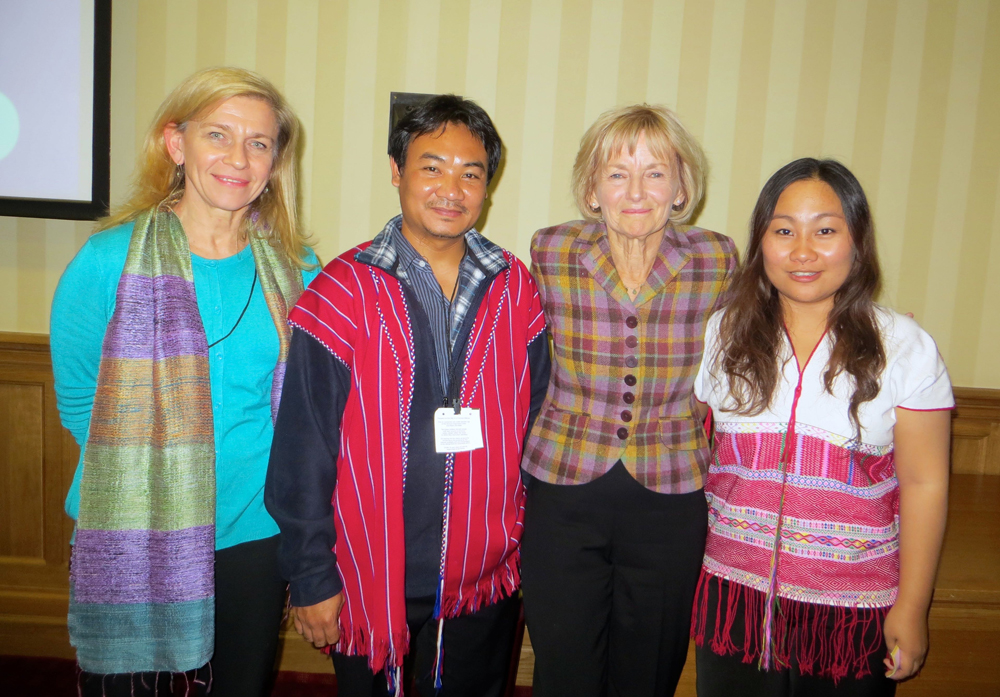
Sally Thompson, Luiz Kaypoe, Baroness Glenys Kinnock and Naw Ta Mla Saw in the British Parliament.
Campaign Aims to Highlight Ongoing Human Rights Plight in Burma
Our rose-tinted glasses campaign is reported in Karen News.
“A campaign by the Burma Campaign UK is trying to highlight ongoing human rights abuses in Burma.
To make its point, Burma Campaign has delivered more than 2,000 rose-tinted glasses, and issued photo petitions to the British Foreign Office to put pressure on the British government to a “return to putting human rights as their top priority in Burma,” the group said.”

